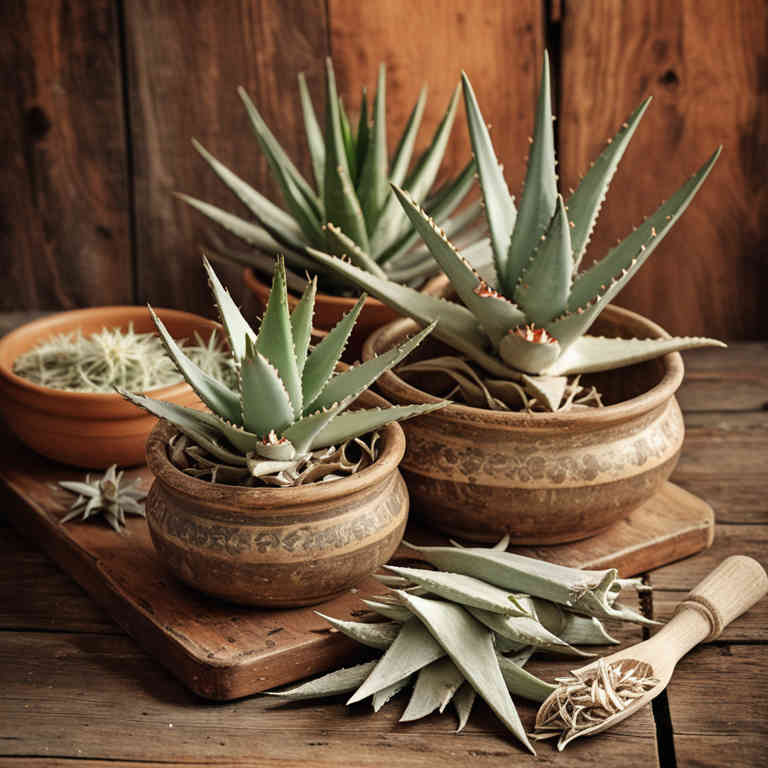Aloe perryi mucillage for medicinal use

Aloe perryi mucillage is a viscous, gel-like substance derived from the leaves of the Aloe perryi plant, which is native to certain regions of Africa.
This preparation is rich in mucilage, a type of polysaccharide that has soothing and demulcent properties. In herbalism, it is used to alleviate irritation and inflammation in the digestive tract, often for conditions like gastritis or ulcers. It may also be applied externally to soothe skin irritations or burns due to its protective and hydrating qualities.
The mucilage's ability to form a protective layer over mucous membranes makes it a valuable remedy in traditional and complementary medicine.
Uses
Aloe perryi mucillage has been used to treat digestive disorders and skin conditions for centuries in traditional medicine.
Historically, it was valued by indigenous communities in Africa and parts of Asia for its soothing and healing properties. In traditional practices, it was often applied topically to wounds, burns, and rashes, or consumed to alleviate gastrointestinal discomfort. Modern research has explored its potential anti-inflammatory and antioxidant effects, leading to its use in contemporary herbal remedies and skincare products.
However, further scientific studies are needed to fully understand its therapeutic benefits and mechanisms of action.
Benefits
Aloe perryi mucillage has health benefits such as promoting digestive health, supporting skin healing, and reducing inflammation.
It contains a unique blend of mucilage and bioactive compounds that can soothe the gastrointestinal tract and aid in the treatment of conditions like irritable bowel syndrome. The mucilage acts as a natural demulcent, providing a protective layer over irritated tissues. Additionally, it may enhance immune function and contribute to overall wellness due to its antioxidant properties.
This herbal preparation is often used in traditional medicine for its calming and restorative effects on both internal and external tissues.
Constituents
Aloe perryi mucillage active constituents include polysaccharides, mucilage, and aloin.
These components are known for their soothing and protective properties on the digestive tract. The polysaccharides may support immune function and have anti-inflammatory effects. Mucilage acts as a demulcent, helping to alleviate irritation and promote healing.
Aloin, although less abundant in mucilage, may contribute to its laxative and anti-inflammatory benefits.
Preparation
To make Aloe perryi mucillage, begin by harvesting mature leaves from the Aloe perryi plant, ensuring they are fully grown and free from pests or damage.
Wash the leaves thoroughly under running water to remove any dirt or debris. Cut the leaves into thin slices and allow them to sit in a cool, dark place for 24 hours to release the mucilage. Next, blend the sliced leaves with a small amount of water until a smooth, gel-like consistency is achieved.
Finally, strain the mixture through a fine mesh or cheesecloth to separate the mucilage from the plant material, and store the resulting preparation in a sealed container in the refrigerator for up to two weeks.
Side Effects
Aloe perryi mucillage may lead to gastrointestinal discomfort, including nausea, vomiting, and diarrhea, due to its high mucilage content.
It may also cause dehydration if consumed in large amounts, as it has a high water-binding capacity. Long-term use could potentially interfere with nutrient absorption and electrolyte balance. Some individuals may experience allergic reactions, such as skin rashes or itching.
It is important to consult a healthcare professional before using this preparation, especially for those with pre-existing medical conditions or who are taking other medications.